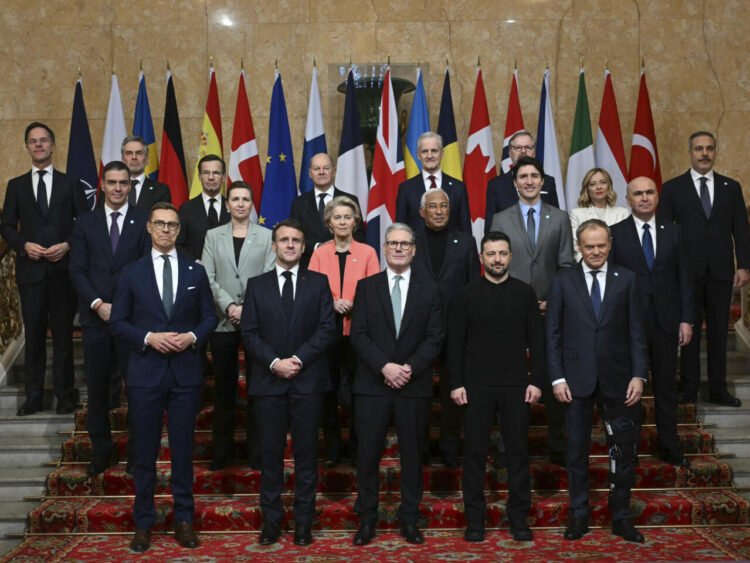KYIV — Ukraine will host a key summit on Saturday with leaders from the so-called “coalition of the willing,” a group spearheaded by France and the United Kingdom, amid renewed efforts to secure long-term international guarantees against future Russian aggression.
President Volodymyr Zelenskiy announced the meeting in a video address released Thursday, emphasizing the need for a unified and capable alliance to ensure Ukraine’s security beyond the current war.
“We need this coalition, and it should be strong enough to guarantee security in line with our common vision,” Zelenskiy said.
The coalition, established earlier this year, reflects growing concern in Europe that the United States may no longer serve as a consistent pillar of support for Ukraine in its three-year war with Russia. European leaders have been exploring ways to assume a more direct role in post-war security arrangements, though progress remains elusive as the prospect of a ceasefire continues to hinge on Moscow’s response and the extent of U.S. backing.
Among the options under consideration is the deployment of a limited foreign military presence in Ukraine as part of potential security guarantees. While no official list of attending leaders has been released, French President Emmanuel Macron confirmed on Friday that France would participate in the meeting, which is expected to be held in a hybrid format—partly in person, partly via video link.
Germany’s new chancellor, Friedrich Merz, also signaled earlier this week that he plans to visit Ukraine in the near future, though it remains unclear if he will attend Saturday’s talks in Kyiv.
In parallel to the diplomatic maneuvering, Zelenskiy said he spoke by phone with U.S. President Donald Trump and reaffirmed Ukraine’s readiness to implement a proposed 30-day ceasefire “immediately.” The measure, first floated by Trump in March, has received Kyiv’s support. However, Moscow has demanded the establishment of credible mechanisms to monitor and enforce any such truce.
The upcoming summit is seen as a litmus test for European resolve, particularly as the war drags on with no clear end in sight and Ukraine continues to seek concrete assurances that its sovereignty and security will be defended in the years ahead.

 English
English



























































